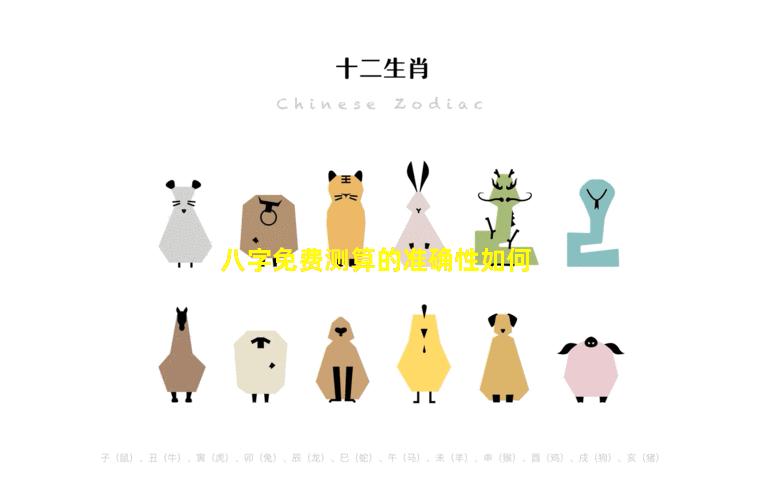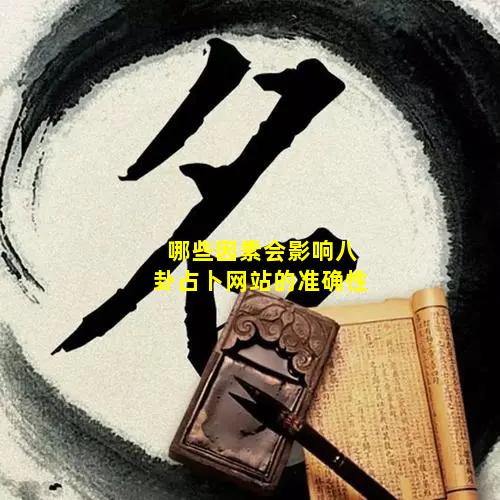命格说法的准确性:我们能相信吗
- 作者: 柳璐
- 来源: 投稿
- 2024-08-19
一、命格说法的准确性:我们能相信吗
命格说法的准确性命格说法,又称八字算命或四柱预测,是一种基于出生日期和时间来预测个人命运的传统中国占卜方法。其准确性一直备受争议。
支持命格说法准确性的论点:
统计证据:一些研究表明,命格说法在预测某些生活事件(如婚姻、职业)方面具有一定的准确性。
个人经验:许多人声称命格说法准确地描述了他们的性格、生活经历和未来趋势。
文化传统:命格说法在中国文化中根深蒂固,数千年来一直被广泛使用。
质疑命格说法准确性的论点:
缺乏科学依据:命格说法缺乏科学证据的支持。出生日期和时间与个人命运之间没有已知的因果关系。
巴纳姆效应:命格说法通常使用模糊和笼统的语言,这可能会导致巴纳姆效应,即人们倾向于将模糊的描述解释为对自己准确。
自我实现预言:如果人们相信命格说法,他们可能会无意识地按照预测行事,从而使预测自我实现。
样本偏差:支持命格说法准确性的研究往往基于小样本或轶事证据,这可能会导致样本偏差。
结论:命格说法的准确性是一个复杂的问题,没有明确的答案。虽然一些研究表明它可能具有一定的预测能力,但缺乏科学依据和样本偏差等因素也限制了其可靠性。
最终,是否相信命格说法是一个个人选择。有些人可能发现它是一种有用的工具,可以提供对他们生活的见解,而另一些人可能认为它是一种迷信。重要的是要记住,命格说法不应该被视为绝对真理,而应该被视为一种潜在的指导工具。
二、命格说法的准确性:我们能相信吗为什么
命格说法的准确性命格说法,也称为八字或四柱,是一种古老的中国占卜系统,用于预测一个人的命运和性格。它基于出生日期和时间,并使用天干地支来计算一个人的命格。
命格说法的准确性存在争议,有以下原因:
1. 缺乏科学依据:命格说法没有科学依据来支持其预测的准确性。它基于古代的信仰和经验主义,而不是科学研究。
2. 变量过多:命格说法考虑了出生日期和时间等有限的变量。还有许多其他因素可以影响一个人的生活,例如环境、教育、个人选择和机遇。
3. 解释主观:命格说法的解释通常是主观的,不同的命理学家可能会对同一命格得出不同的结论。这使得评估其准确性变得困难。
4. 自我实现预言:如果一个人相信自己的命格,他们可能会无意识地按照预测行事,从而使预测成为现实。这被称为自我实现预言。
5. 统计偏差:一些研究表明,命格说法在预测某些特定事件(例如婚姻或职业成功)方面可能具有一定的准确性。这些研究通常规模较小,并且可能存在统计偏差。
因此,我们不能完全相信命格说法的准确性。它是一种基于古代信仰和经验主义的占卜系统,缺乏科学依据。虽然它可能在某些情况下提供一些见解,但它不应该被视为对未来命运的可靠预测。
相反,我们应该专注于我们自己的选择和行动,并认识到我们的生活是由我们自己塑造的,而不是由出生日期和时间决定的。

三、命格说法的准确性:我们能相信吗英语
The Accuracy of Destiny Readings: Can We Trust Them?
Destiny readings, also known as fortunetelling or divination, have been practiced for centuries across various cultures. They claim to provide insights into an individual's life path, personality, and future events. However, the accuracy of these readings has been a subject of debate and skepticism.
Types of Destiny Readings
There are numerous methods of destiny readings, including:
Astrology: Interpreting the positions and movements of celestial bodies to determine their influence on human affairs.
Numerology: Assigning numerical values to letters and names to derive insights about a person's character and destiny.
Palmistry: Reading the lines and patterns on the palms of the hands to predict future events.
Tarot cards: Using a deck of 78 cards with symbolic imagery to gain insights into the past, present, and future.
Evidence for Accuracy
Some proponents of destiny readings claim that they have a high degree of accuracy. They cite anecdotal evidence from satisfied clients who believe that the readings have provided valuable guidance and insights. However, scientific studies have not consistently supported these claims.
Factors Affecting Accuracy
The accuracy of destiny readings can be influenced by several factors, including:
The skill and experience of the reader: A skilled reader with a deep understanding of the method can provide more accurate readings.
The individual's belief in the reading: Those who believe in the power of destiny readings may be more likely to experience positive outcomes.
The context of the reading: The setting, time, and circumstances can impact the accuracy of the reading.
Randomness and chance: Destiny readings often involve elements of randomness, which can lead to unpredictable outcomes.
Limitations and Skepticism
Critics of destiny readings argue that they are based on superstition and lack scientific validity. They point out that:
Predictions are often vague and open to interpretation: Destiny readings often provide general predictions that can be applied to many different situations.
Confirmation bias: Individuals may tend to remember and focus on the predictions that come true, while ignoring those that do not.
The placebo effect: The belief in the power of destiny readings can lead to positive outcomes, regardless of the actual accuracy of the reading.
ConclusionThe accuracy of destiny readings remains a matter of debate. While some individuals may find them helpful and insightful, there is no scientific consensus to support their reliability. It is important to approach destiny readings with caution and to recognize their limitations. Ultimately, the decision of whether or not to trust them is a personal one.
四、命格说法的准确性:我们能相信吗
命格说法的准确性命格说法,也称为八字或四柱,是一种古老的中国占卜系统,用于预测一个人的命运和性格。它基于出生日期和时间,并使用天干地支来计算一个人的命格。
命格说法的基础命格说法认为,一个人的出生时间决定了其五行(金、木、水、火、土)的平衡。五行之间的相互作用和平衡被认为会影响一个人的性格、命运和生活事件。
准确性命格说法的准确性是一个有争议的话题。一些人认为它是一种准确的预测工具,而另一些人则认为它是一种迷信。
支持命格说法准确性的证据
统计研究:一些研究表明,命格说法可以预测某些性格特征和生活事件。例如,一项研究发现,出生在特定五行日的人更有可能从事创造性职业。
个案研究:许多人报告说,命格说法准确地描述了他们的性格和生活经历。
传统:命格说法在中国已有数千年的历史,并且一直被广泛使用。这表明它可能具有一定的准确性。
反对命格说法准确性的证据
缺乏科学证据:没有科学证据支持命格说法的五行理论或其预测能力。
安慰剂效应:人们可能相信命格说法,因为他们希望它能提供对他们生活的洞察力。这可能会导致安慰剂效应,即人们体验到他们所期望的结果。
文化偏见:命格说法基于中国文化,可能不适用于其他文化背景。
结论命格说法的准确性是一个复杂的问题。虽然有一些证据支持其准确性,但也有证据反对它。最终,是否相信命格说法是一个个人决定。
建议如果您正在考虑使用命格说法来了解您的命运或性格,请记住以下几点:
谨慎对待:命格说法是一种占卜系统,不应被视为科学事实。
寻求专业人士的意见:如果您对命格说法感兴趣,请咨询合格的命理师。
不要依赖它:命格说法不应被用作做出重要人生决定的唯一依据。
保持开放的心态:命格说法可能提供一些有用的见解,但重要的是要保持开放的心态并批判性地思考其预测。

.jpg)

